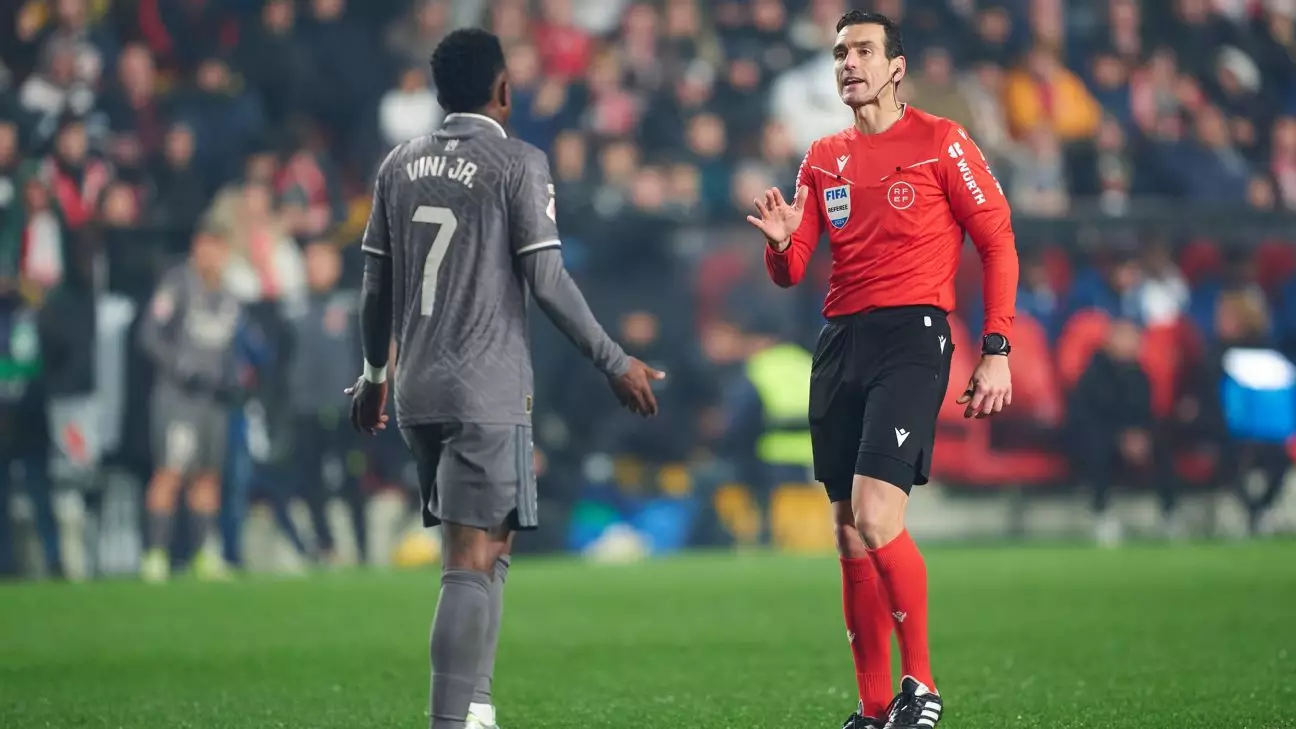The recent LaLiga match between Real Madrid and Rayo Vallecano has evolved into a focal point of controversy following a dramatic 3-3 draw in Vallecas. Vinícius Júnior, who was brought on as a substitute in the second half, found himself at the center of attention due to his reaction to boos and chants from Rayo fans. During this clash, Madrid initially struggled, falling 2-0 behind, before mounting a comeback to lead 3-2, only to draw in the final moments. The emotional rollercoaster of the match made it a memorable one, but the interactions between the player and the fans have transformed it into a topic of significant scrutiny.
As Vinícius exited the field, he was reportedly met with jeering from the Rayo Vallecano supporters. In a moment captured and widely circulated on social media, the Brazilian winger responded with a gesture that many interpreted as a taunt, implying that Rayo might be on the brink of relegation. This exchange has raised questions about player conduct in the face of provocation and whether such gestures are appropriate, particularly in a sporting environment that prides itself on sportsmanship. The fine line between expressing frustration and exacerbating tensions on the field comes into question, and the implications extend beyond just this incident.
In light of the events, LaLiga has taken a decisive stance. Sources indicate that both the crowd’s chants and Vinícius’ response will be reported to the Spanish football federation’s disciplinary committee. LaLiga president Javier Tebas emphasized the importance of evaluating the situation comprehensively. In his statement, he noted the absence of racist chanting but acknowledged the presence of provocative insults. This delicate balance of recognizing player frustrations while addressing fan behavior highlights the complexities involved in maintaining decorum in football.
Adding further fuel to the fire, Rayo Vallecano’s president, Raúl Martín Presa, critiqued Vinícius for his response, labeling it as “not correct.” His comments underscore the emotional stakes involved for clubs like Rayo, where relegation battles can be lethal for their survival. By suggesting that Vinícius’ gesture could impact the dynamic between players and fans, Presa’s remarks find a resonance in discussions about respect on and off the pitch. It prompts a larger conversation about the responsibilities of athletes as role models and the influence their actions can have on fan interactions.
Ultimately, this incident serves as a microcosm of the challenges that modern football faces concerning fan-player relationships. As the sport grapples with the dual realities of fiery passions and sportsmanship, the potential repercussions of such actions resonate beyond the immediate environment of a match. How LaLiga handles this situation may set a precedent for future interactions between players and fans, fostering either a more stringent approach to discipline or promoting an atmosphere where competitive spirit is allowed to flourish without crossing the line into negativity. As this scenario unfolds, it remains to be seen how it will influence the relationship dynamics in the sport moving forward.
